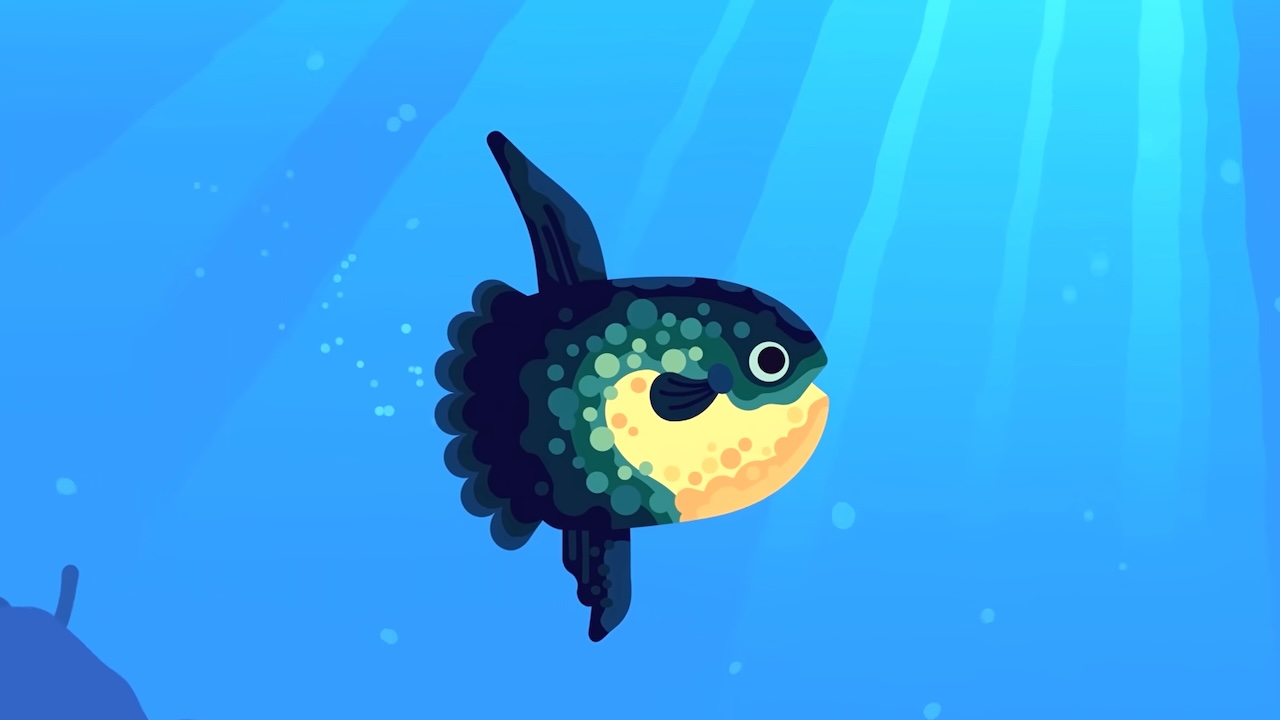The ever-insightful animated series Kurzgesagt takes a colorful look at the Sunfish (Mola), noting how their bizarre physiology keeps them safe from predators. These unique fish have an oddly short spine, a particularly bony body, a lack of dorsal fins, and can grow to an enormous size, all of which make them distasteful to larger fish.
Once Mola reach a certain size most predatory fish seem to avoid them, probably wrongfully assuming their size means that they could fight back – and because their outsides are too tough. But orcas, sharks and sea lions sometimes attack and take a bite – usually only to say: “No thank you, I prefer starving to death”. Because for big predators sunfish are watery, not very nutritious, cartilage filled, parasite-ridden jelly donuts.
Sunfish have winglike fins to travel across and down into the midnight zone, where they forage for food and then come up to the surface to regain the heat lost in the frigid deep sea water. As the sunfish comes up, over 50 varieties of parasites attach themselves, however being they have a symbiotic relationship with birds and other fish, they get their skin cleaned for the price of a meal.
Mola frequently swim to the surface to float on their side like a pancake. They are sunbathing to warm up again from deep cold dives – which is where they got their name from. But they also do it to present their body to seabirds like albatrosses. The birds start picking the parasites from the Sunfish body – while smaller fish that live near the surface take care of the bottom half – cleaning them in exchange for a snack.
The more they eat, the bigger they get, which again keeps them safe from predators.
Luckily sunfish have the most rapid and extreme growth of any animal – a larva can increase its weight 60 million times from hatching to adult. …If you grow fast you need a lot of nutritious food, …Mola are generalized predators with a focus on small and soft stuff. Their huge eyes can see incredibly well, especially in dim water, and they can sneak up on small prey or sift through drifting zooplankton. Mostly fish larvae, squids, shrimps, mollusks, starfish, small crustaceans – really any soft critter they can get to.
Sunfish Cleaning
Related Posts

